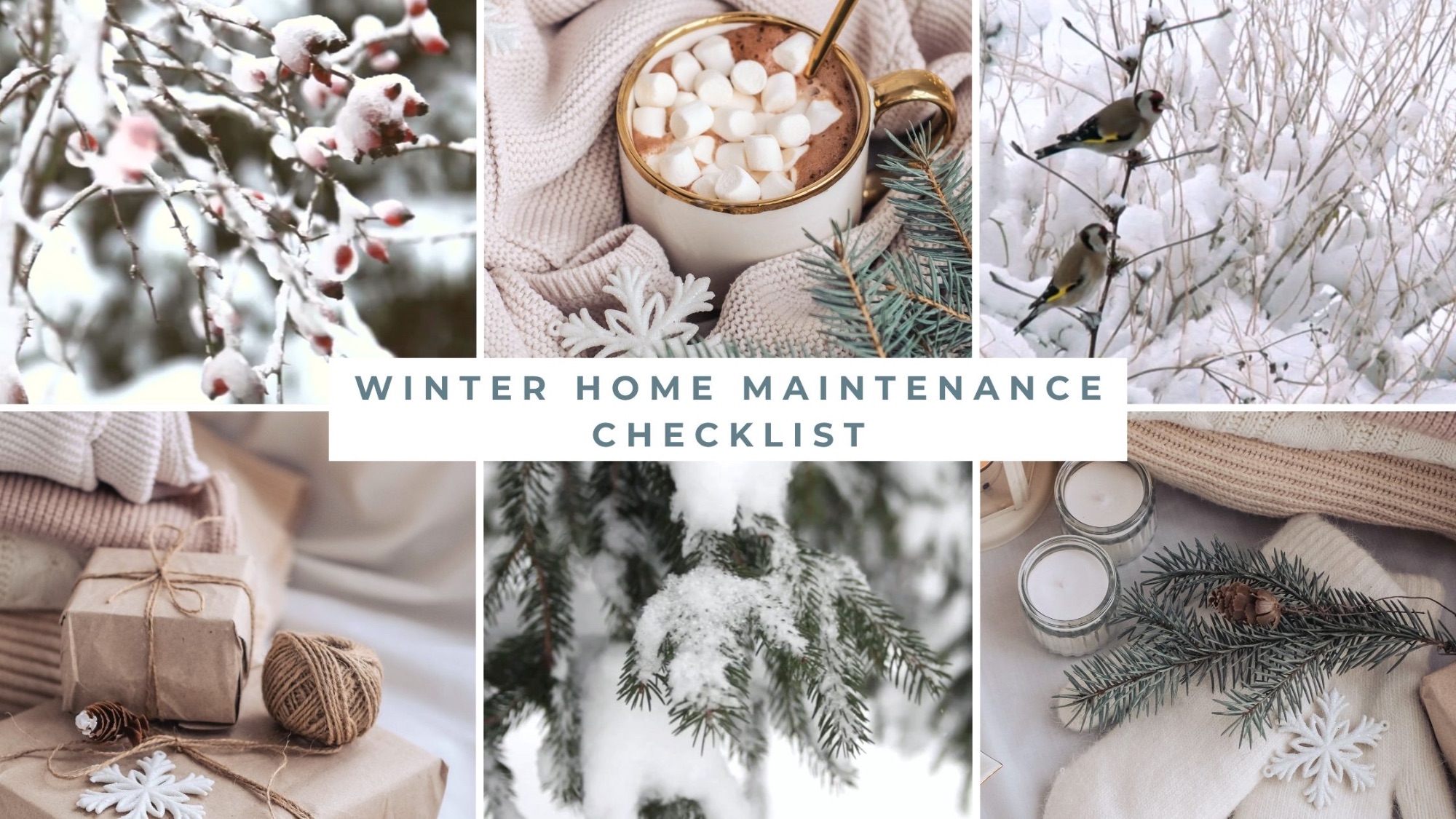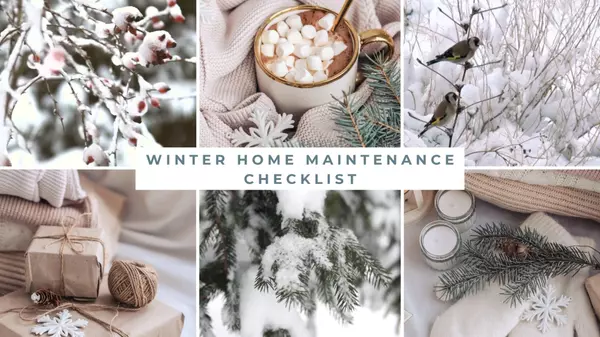Michigan Winter Home Maintenance Checklist
Michigan Winter Home Maintenance Checklist
Prepared by Tracy Butcher, CommuniKey Agents powered by Epique Realty Your Local Michigan Real Estate Resource
Winter in Michigan brings unique challenges and opportunities for home care. This checklist will help you prepare your home to stay warm, safe, and efficient throughout the colder months.
I. Exterior Prep (Before the First Hard Freeze)
-
Clean Gutters & Downspouts: Remove all leaves, debris, and blockages. Clogged gutters can lead to ice dams, which can cause significant roof and water damage. Ensure downspouts direct water at least 5 feet away from the foundation.
-
Disconnect & Store Hoses: Detach all garden hoses from outdoor spigots. Drain any remaining water from hoses and store them indoors (shed, garage).
-
Shut Off Exterior Faucets/Valves: Locate the shut-off valve for your outdoor spigots (usually in the basement or crawl space) and turn off the water supply. Then, open the outdoor faucet to drain any residual water in the line to prevent freezing and bursting.
-
Winterize Sprinkler/Irrigation Systems: If you have an in-ground sprinkler system, have it professionally blown out or properly drained to prevent pipes from freezing and cracking.
-
Inspect Roof & Chimney:
-
Check for loose, cracked, or missing shingles. Repair them to prevent water intrusion from melting snow or ice.
-
Inspect chimney for cracks, loose mortar, or blockages. If you use your fireplace or woodstove, schedule a professional chimney cleaning and inspection.
-
-
Store Outdoor Furniture & Grills: Clean patio furniture, cushions, and grills, then store them in a garage, shed, or cover them securely to protect them from snow and ice.
-
Prepare Snow Removal Equipment: Get your snow shovels, snow blower, and ice melt ready. Ensure snow blower is fueled and in good working order. Stock up on de-icing salt or sand (use sparingly on concrete to avoid damage).
-
Trim Trees & Shrubs: Trim back branches that are close to your home or power lines. Heavy snow and ice can cause branches to break and fall, leading to damage.
-
Check Foundation: Look for any cracks in your foundation, driveway, or walkways. Small cracks can worsen significantly with freeze-thaw cycles. Consider sealing larger cracks.
-
Remove Window Screens / Install Storm Windows (if applicable): If you have storm windows, install them for an extra layer of insulation. Otherwise, consider removing regular screens for winter.
-
Cover Outdoor AC Unit: If you have a central air conditioning unit, clean it and consider covering it with a breathable cover or a piece of plywood weighted down with bricks to protect it from falling ice and debris. Consult your manufacturer's recommendations.
II. Interior Prep & Energy Efficiency
-
Furnace/Heating System Inspection: Schedule a professional inspection and tune-up for your furnace or heating system. This ensures it runs efficiently and safely, preventing breakdowns when you need it most.
-
Change HVAC Filters: Replace your furnace filter monthly or every 1-3 months during peak heating season, depending on your system and household needs. A clean filter improves efficiency and air quality.
-
Test Smoke & Carbon Monoxide Detectors: Replace batteries annually and test all detectors monthly. Ensure you have carbon monoxide detectors on every level of your home, especially near sleeping areas and heating sources.
-
Insulate Pipes: Wrap any exposed pipes in unheated areas (crawl spaces, basements, garages) with pipe insulation to prevent freezing.
-
Seal Drafts & Air Leaks:
-
Windows & Doors: Check for gaps around windows and doors. Apply weatherstripping and caulk where needed. Use door snakes or draft stoppers at the bottom of exterior doors.
-
Outlets & Switches: Use foam gaskets behind outlet and switch plates on exterior walls to block drafts.
-
Fireplace: Keep the damper closed when not in use. Consider an inflatable chimney balloon if your fireplace is rarely used.
-
-
Optimize Your Thermostat:
-
Set it Right: Aim for a comfortable yet energy-efficient temperature, usually between 68-70°F when you're home and awake.
-
Programmable/Smart Thermostat: Install a programmable or smart thermostat to automatically lower the temperature when you're away or asleep (e.g., 60-62°F). You could save 10% on heating costs by setting back your thermostat 7-10 degrees for 8 hours a day.
-
-
Furnace Maintenance & Filters:
-
Annual Tune-Up: Schedule a professional furnace inspection and tune-up every fall. A well-maintained system runs more efficiently.
-
Change Filters: Replace your furnace filter monthly or every 1-3 months during heating season. A dirty filter restricts airflow and makes your furnace work harder.
-
-
Maximize Natural Heat:
-
Open Curtains/Blinds: On sunny days, open south-facing curtains and blinds to let natural sunlight warm your home.
-
Close at Night: Close curtains and blinds at night to add an extra layer of insulation and prevent heat loss through windows.
-
-
Insulation Check:
-
Attic: Ensure your attic has adequate insulation. The recommended R-value for Michigan is quite high (R-49 to R-60, or about 15-20 inches of insulation).
-
Walls/Floors: Consider adding insulation to walls or crawl spaces if you have uninsulated areas.
-
-
Identify Cold Spots: Walk around your home to feel for cold spots or drafts. Use an incense stick or a lit candle to see if the flame flickers, indicating a draft.
-
Reverse Ceiling Fans: In the winter, set your ceiling fans to rotate clockwise on a low speed. This pushes warm air that rises to the ceiling back down into the room.
-
Water Heater Efficiency:
-
Lower Temperature: Set your water heater to 120°F – hot enough for comfort but not so hot that it wastes energy.
-
Insulate Tank & Pipes: If your water heater tank feels warm to the touch, consider insulating it. Insulate the first six feet of hot and cold water pipes connected to the heater.
-
-
Unplug "Energy Vampires": Unplug electronics and appliances that draw power even when turned off (e.g., phone chargers, coffee makers, TVs) or use power strips that you can switch off.
-
Mind the Fireplace: While cozy, fireplaces can actually pull warm air out of your home. Ensure the damper is closed tightly when not in use. Use fireplace doors to reduce heat loss when a fire is burning down.
Remember: Regular maintenance saves money in the long run and helps ensure your Michigan home is comfortable and safe through every season.
Need help with your Michigan real estate needs? Contact Tracy today! 810.428.7092 | tracybutcherrealtor@gmail.com | www.soldbytracyb.com

Categories
GET MORE INFORMATION







